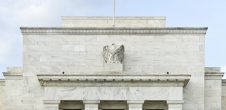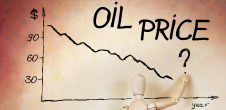Moe Zulfiqar, B.Comm.
Moe Zulfiqar joined Lombardi Financial as a research analyst and editor where he provides insight into current market conditions, trends, and where the next big opportunity will surface. Moe analyzes macroeconomic conditions, but has a special interest in the basic materials, financial, and technology sectors.
Moe has a strong understanding of North American capital markets. A student of world finance and trading, he has extensive knowledge of both fundamental and technical analysis, and uses them to evaluate high-growth investment opportunities.
Moe is a graduate of the York University business program. He is an avid runner and has completed two half-marathons. In the past, Moe has participated in competitive football, wrestling, and rugby. He is an avid football fan, and his favorite team is the Dallas Cowboys.
Get to know Moe…
What was your first trade and how did you do?
The first trade I ever made was in a company that made prepaid credit cards. It was a penny stock that traded on the TSX Venture Exchange. I invested in the company because I liked the idea and I thought it had the potential to grow. It didn’t. I lost 50% of my investment, but I learned something significant from it: great ideas can only work if they are executed well.
What is the most important advice you would offer to investors?
There are three main pieces of advice I always offer my readers. The first is that predicting tops and bottoms is impossible, and it can make a huge dent in your portfolio if you’re wrong—so don’t do it. Second, you need to know when to bow out; cut your losses before they get bigger. Finally, never risk more than you can afford to lose.
What moment in stock market history has really influenced your investing career?
There are two moments that have really stuck with me.
The first was on Monday, September 15, 2008. On this day, Lehman Brothers collapsed. There was a significant amount of uncertainty in the markets. No one really knew what to do, what was next. To me, this moment was one of the most difficult for investors. You had to be very careful in what you did; due diligence was key.
The second date is Friday, March 6, 2009. On this day, the S&P 500 dropped to its lowest level since 1996. There was uncertainty as to where the markets would head next. On the next trading day, the markets turned; we haven’t seen those lows since. This moment was a great example of one of my many investing mantras: buy when there’s blood in the streets.
Email: [email protected]












